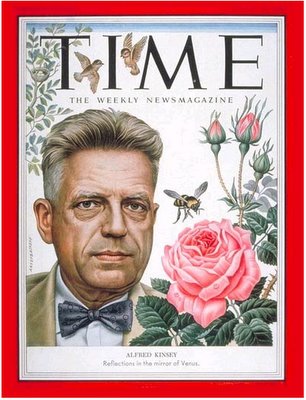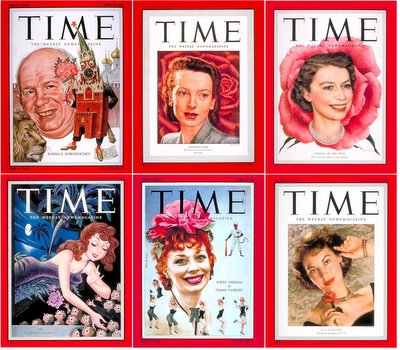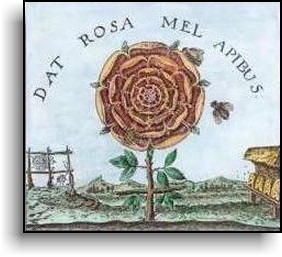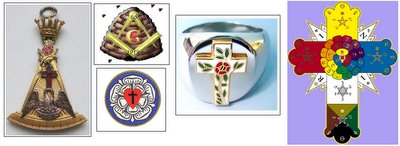Friday, August 25, 2006
Fraternal symbols on Time covers 7: Rose and Bee
Time Magazine August 24 1953
The fraternal symbol of the rose features heavily in the peak period of Masonic symbolism on Time Magazine covers (roughly 1945-1955). The symbol is connected to the 18th degree of Scottish right Freemasonry (18° Knight of the Rose Croix) which is connected to Rosicrutionism.
http://en.wikipedia.org/wiki/Rosicrucian#Alleged_Influence_on_Freemasonry
Check out the one that even has a bee, another symbol of masonry!
"The bee and the hive have long been symbols of industry and regeneration, wisdom and obedience, with a place in Egyptian, Roman and Christian symbolism. The hive is often seen in Masonic illustrations of the 18th and 19th century and both Clovis and Napoleon adopted the bee as their symbol. Although "the bee was among the Egyptians the symbol of an obedient people, because, says Horapollo, 'of all insects, the bee alone had a king.'1, its use in Freemasonry was secondary to any number of other symbols based on the working tools of a stone mason."
http://freemasonry.bcy.ca/symbolism/bees.html
Another interpretation of the rose could be the idea of secrecy as in "Sub Rosa"
sub rosa \suhb-ROH-zuh\,
adverb:1. Secretly; privately; confidentially.
adjective:1. Designed to be secret or confidential; secretive; private
Sub rosa comes from the Latin, literally "under the rose," from the ancient association of the rose with confidentiality, the origin of which traces to a famous story in which Cupid gave Harpocrates, the god of silence, a rose to bribe him not to betray the confidence of Venus. Hence the ceilings of Roman banquet-rooms were decorated with roses to remind guests that what was spoken sub vino (under the influence of wine) was also sub rosa.
http://dictionary.reference.com/wordoftheday/archive/2003/02/17.html
Note the bee in the image above.
Click on image to enlarge
Subscribe to:
Post Comments (Atom)





No comments:
Post a Comment